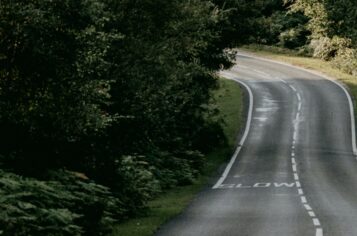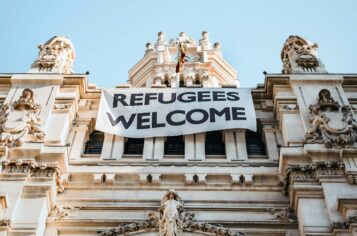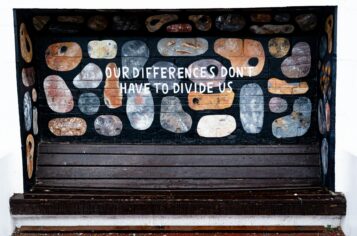Young people can transform our hurting and broken world
Posted by Difference on February 5, 2024
Young people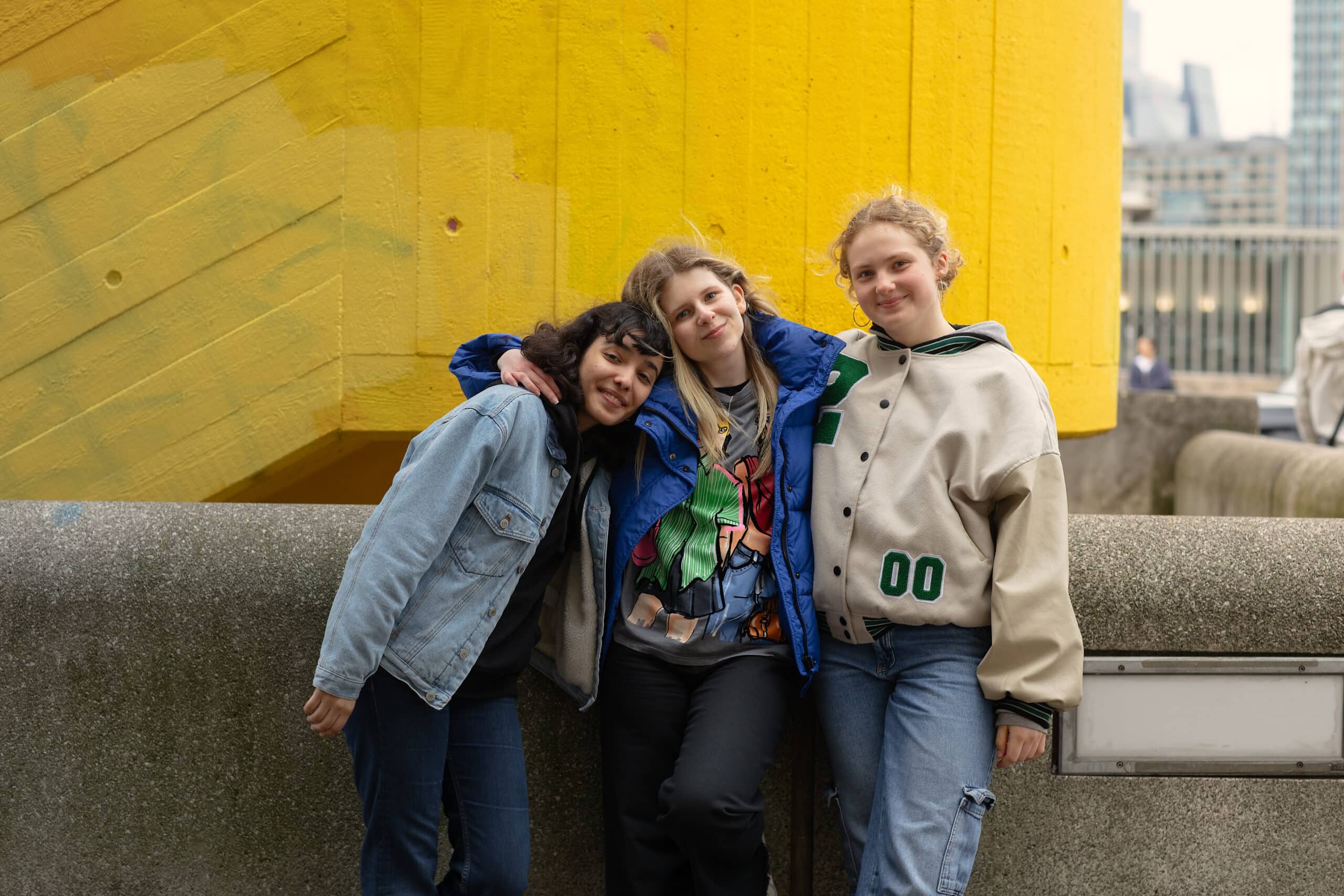
Lou Peet, Chaplain of Blue Coat Church of England School and Music College, Coventry, and Ordinand in the Church of England shares why she’s inspired by young people and how the principles of peace and reconciliation can be transformative for them and their communities.
Young people inspire me, and I think they’re precious. Recently I was at an assembly where we talked about respect. I spoke about respecting ourselves. I told the students that they are hugely gifted, valuable, and important, not just to the church, or tomorrow, but also today. They are worth everything to God and I’m inspired by their potential.
I can’t wait to see them leave Blue Coat School and live their fullest lives. I can’t wait until they are my Prime Minister, or personally go to them for advice or support, or live under their authority and leadership in different spheres. When I see them really living out our school values, and what it is to be a reconciler or a peacemaker with each other, I think it goes against the often-negative media portrayal of young people.
I love journeying with people
Young people often teach me and challenge me, so it’s wonderful to be part of their story as a Chaplain. I was a GP for the same reason as I’m a chaplain and an ordinand – I really love working closely with people. I love walking alongside them. I love seeing them achieve everything they can.
Our motto at Blue Coat School is taken from John 10:10: “The thief comes only to steal and kill and destroy; I have come that they may have life and have it to the full”. We’re an International Cross of Nails (ICON) school. This is a network of primary and secondary schools around the world that have introduced the principles of peace, forgiveness, conflict transformation, and reconciliation into their school communities.
Applying the principles of God’s Kingdom to everyone
I like the Difference course because it’s got the Kingdom of God all over it and the principles are applicable to everyone, including the people leading it. I was part of the team that wrote Difference for Secondary Schools and piloted the resource with a group of students at my school.
Writing the course caused me to think about and use all my experience with young people, schools, education, and learning. Personally, the process grounded me, especially in the Crossing Divides session – this looks at our attitudes and behaviours and how they often build barriers between us and other people.
For example, when young people react and respond to each other in unpleasant ways, this can be due to several factors. This can include their current level of brain and emotional development, what they see and hear at home, and what they see and participate in in media. Sometimes their responses build more barriers than there needs to be – Difference looks at these.
Young people’s experiences of conflict and division
So how did it go when I ran the course with young people? I learned a lot about the depth of young people’s experiences with issues of conflict and division. I hang out with young people all the time, but Difference made me realise how important and how conscious young people are of the concept of being reconciled together and functioning well as a community. They spoke specifically about it. Running the sessions meant that we had a specific time when we could think about these issues. It also builds on the work done in collective worship, religious education, and physical, health, social, and economics (PSHE) classes.
Young people know that there are fractures within school, society, and community groups that they are part of. This can make a huge difference to them as they are developing, and learning to become adults. Therefore, I think Difference is important for young people across the board.
Since we came out of the COVID-19 pandemic, one of the biggest things we have noticed is its impact on young people’s mental health and their resilience. Before that, students had some stores of resilience to deal with conflict – whatever that looked like. Now they don’t seem to have those stores anymore.
Supporting young people to be the people God wants them to be
Young people’s resilience is important because it affects how you teach and how they take feedback. It affects their friendships and their involvement in sports or clubs. If a young person doesn’t have a good level of resilience and self-esteem, things can fall apart emotionally. Difference for secondary schools is nicely timed because it speaks to all these things. It deals with how we recognize and deal with conflict personally and externally.
Courses like Difference are exciting for me because they shape people into the people God wants them to be wherever they end up, and I think that’s a transformative thing. If our young people dare to pray or be peacemakers or reconcilers – imagine the influence upon society, then? That would transform everything!
During the piloting, we unpacked the three Difference habits: Be Curious, Be Present, and Reimagine. We kept talking about them throughout each session. If we take those habits to heart, they have the power to change how we perceive ourselves and the world around us.
Crossing divides – transformative and powerful
In terms of sessions, the kids usually bring up Crossing Divides – one of the sessions we did very early on. We asked them to write on Post-it notes their behaviours when they respond to people if there’s a conflict or if they don’t like them. They wrote their behaviours which we stuck on the window to form a ‘brick wall’. Then I asked the students: “Can you see the person on the other side?” Can they see you? “No, they only see your behaviour.” Then it was transformative to peel off each post-it one by one, being able to see little by little through the wall and revealing more of the person on the other side. This was a significant moment for us.
The pilot group was small, and they said they enjoyed being together and doing something different. This is because Difference for schools is more practical and has different types of activities than PSHE classes, collective worship, and Religious Education because of the links it has. It was also physical and reflective which the group enjoyed and enabled them to bond in a nice way.
Bringing life truth and wholeness to communities
I’ve learned a lot through working with young people on Difference and other projects. I think we have precious people who can transform our broken and hurting world and I enjoy seeing them at the heart of that. I’d also like to be part of the picture where the church has a voice in conflict in the world. I come from Coventry where we have a heart for forgiveness and reconciliation in the city and abroad.
I believe in young people, and the work of the Growing Faith Foundation towards making the church younger and more diverse, which I’d like to play a role in. Bringing young voices into the gathered church needs to happen.
God willing, I’ll be ordained in the summer of 2025 and I’m looking forward to my ordained ministry. I believe in the local church, but my biggest heart is out and in-reach building followers of Jesus, and participating in His kingdom, which is why I am a chaplain. This is so the incredible principles of the Kingdom of God can be seen in the real world, bringing life, truth, and wholeness to communities.
Equipping you to run Difference in secondary schools
The free six-session course explores important themes including human flourishing, hope, respect and living well together. Students participating in this programme will gain the tools and skills to cross divides, navigate disagreement and grow inclusive and welcoming school communities.
People can access the course materials on our resources hub after they have been trained to run Difference in schools. Find out more at difference.rln.global/secondaryschools
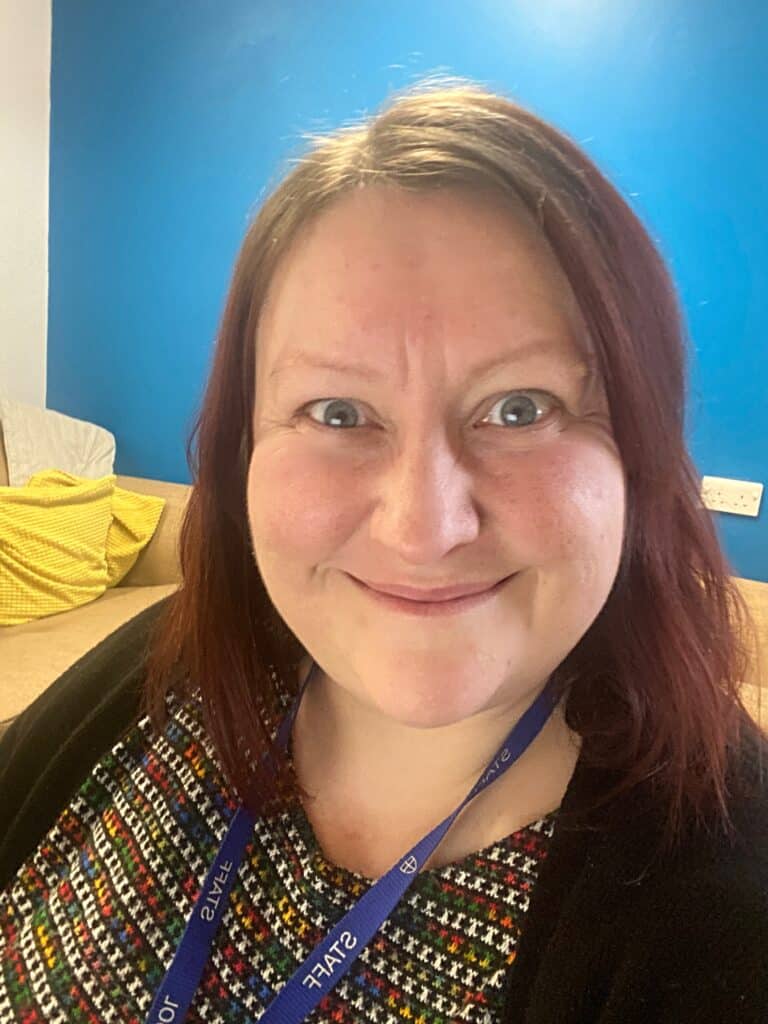
Lou Peet is Chaplain of Blue Coat Church of England School and Music College, Coventry, and Ordinand in the Church of England. Lou was also on the writing team for Difference in Secondary Schools and piloted the course with her students.

